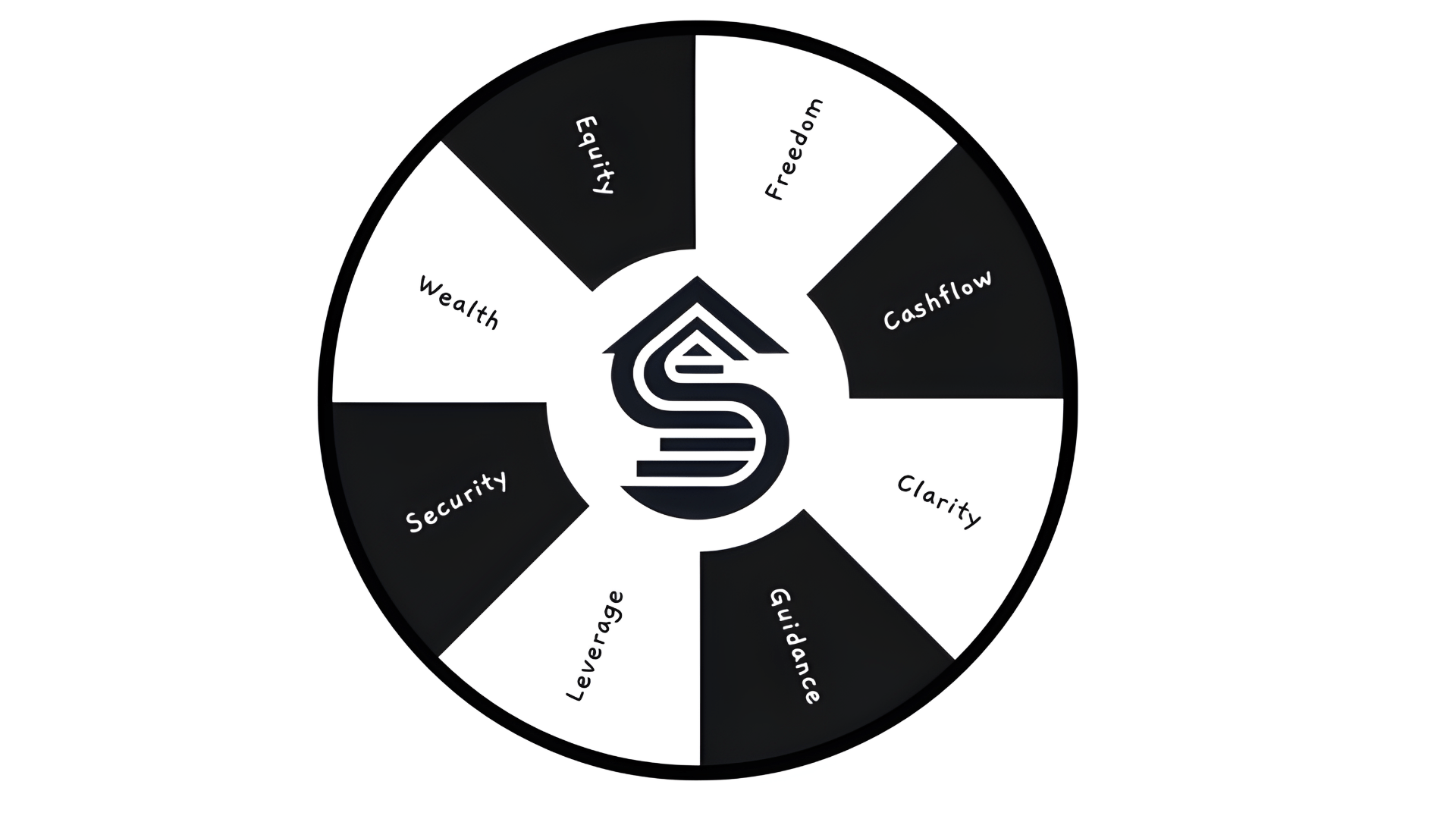
1099 Loan Cash-Out Refinance: Freelance Photographer Accesses Home Equity to Scale Investment Portfolio

Educational Case Study Disclosure
This case study is hypothetical and for educational purposes only. Scenarios, borrower profiles, loan terms, interest rates, and outcomes are illustrative examples and do not represent current offers or guaranteed terms.
For specific details including down payment requirements, closing cost estimates, interest rate details, closing cost breakdowns, payment calculations, cash-to-close estimates, or an official Loan Estimate, it is highly recommended you schedule a meeting with one of our licensed mortgage advisors.
Learn more:
- 1099 loan cash-out refinance Reg Z advertising requirements (§1026.24) – CFPB official regulation
- 1099 loan cash-out refinance Reg Z full text and compliance – Electronic Code of Federal Regulations
- Official 1099 loan cash-out refinance advertising interpretations (§1026.24) – CFPB interpretations
- 1099 loan cash-out refinance MAP Rule (Reg N) mortgage advertising – Mortgage advertising rules
- NMLS Consumer Access – Verify 1099 loan cash-out refinance lender licensure
Actual loan terms vary by credit profile, property, occupancy, location, market conditions, and lender guidelines. For current options tailored to you, schedule a consultation or apply online.
Ready to explore your options? Schedule a call with a loan advisor.
How This 1099 Loan Cash-Out Refinance Helped a Self-Employed Investor Build Generational Wealth
Sarah M., a 41-year-old freelance commercial photographer based in Fort Lauderdale, earned strong annual income from corporate clients, advertising agencies, and magazine publications. After purchasing her first rental property two years earlier, she was ready to acquire property #2—the next step in her deliberate strategy to build a five-property portfolio by age 50. Her vision extended beyond simply owning real estate; she wanted to create multiple passive income streams that would fund her children’s education, provide financial freedom for her family, and build generational wealth that could support future generations.
Sarah owned her primary residence with substantial equity accumulated through years of appreciation and consistent mortgage paydown. She wanted to tap into a significant portion of that equity to fund the down payment on her second investment property—a strategy that would allow her to leverage one asset to acquire another without disrupting her business cash flow or depleting her reserves. She had strong monthly income, excellent credit, proven investment property experience, and clear expansion plans.
However, her smart tax strategy—legitimately writing off camera equipment, travel, studio expenses, and vehicle costs—created an unexpected obstacle when she approached traditional lenders. Like most successful self-employed professionals, Sarah’s accountant had structured her business to minimize tax liability through appropriate deductions. Those same deductions that saved her significant tax dollars annually now made her tax returns show dramatically lower income than she actually earned.
Three conventional lenders rejected her cash-out refinance application within days. The rejection wasn’t just about accessing equity—it threatened her entire timeline for building generational wealth through strategic real estate investing.
Facing similar challenges? Schedule a call to explore your options.
The Challenge: Why Couldn’t Sarah Access Her Own Equity Through Traditional Refinancing?
Sarah approached three major lenders confident she’d qualify for a straightforward cash-out refinance. She earned substantial annual income, maintained excellent credit, had never missed a mortgage payment in her life, and owned her home with considerable accumulated equity. She needed significant capital to purchase a second rental property in an emerging Fort Lauderdale neighborhood she’d been researching and analyzing for months.
All three lenders rejected her application after reviewing her tax returns.
How Do Traditional Lenders Evaluate 1099 Income for Cash-Out Refinancing?
Traditional mortgage lenders focus exclusively on taxable income shown on tax returns rather than actual deposits or earning capacity. They require two years of complete tax returns including all schedules and forms, then calculate qualifying income based on adjusted gross income after business deductions. For self-employed borrowers like Sarah, this approach creates a fundamental disconnect between actual earning capacity and what appears on tax returns.
Despite depositing strong monthly income into her business account consistently throughout the year, Sarah’s Schedule C showed significantly reduced adjusted gross income after legitimate business deductions. Her CPA had properly documented expenses for high-end camera equipment, professional lighting gear, editing software subscriptions, studio rental space, business travel to client locations, marketing and advertising costs, and vehicle expenses related to photoshoots. These weren’t questionable deductions—they were standard, appropriate business expenses that any competent accountant would recommend.
Why Did Sarah’s Smart Tax Planning Prevent Equity Access?
“I felt trapped by the same financial planning that had helped me succeed,” Sarah explained. “My accountant had structured my business brilliantly to minimize taxes and maximize legitimate write-offs—exactly what self-employed professionals should do. But now those same strategies were preventing me from accessing my own equity in my own home to grow my investment portfolio. The bank was essentially penalizing me for being financially smart.”
The qualification gap was substantial and devastating. Sarah needed to refinance her existing mortgage balance and extract significant cash to cover the down payment, closing costs, and reserves for her second investment property. Traditional lenders told her she could only qualify for significantly less financing based on the reduced taxable income showing on her tax returns. That qualification shortfall meant she couldn’t access enough equity to fund her investment property purchase or move forward with property #2 in her portfolio expansion plan.
What Was at Stake Beyond This Single Refinance?
“This wasn’t just about one refinance—it threatened my entire wealth-building strategy,” Sarah said. “I had a clear plan: five rental properties by age 50, each one generating passive income and building equity that I could eventually pass to my children. Property #1 was cash-flowing beautifully with strong monthly rental income covering the mortgage, expenses, and providing positive cash flow. Property #2 was already identified, analyzed, and under contract with a financing contingency. I had the equity sitting in my home, the investment property ready to purchase, and the financial capacity to support both mortgages comfortably. But I couldn’t get past the income verification hurdle with traditional lenders.”
How Did Time Pressure Intensify the Challenge?
With the perfect investment property already under contract with a financing contingency deadline approaching, Sarah faced mounting time pressure. She had negotiated favorable purchase terms and identified a property with excellent long-term appreciation potential in a gentrifying neighborhood. The property had strong rental demand, attractive projected returns, and fit perfectly into her portfolio diversification strategy. Missing this opportunity would mean losing her earnest money deposit, watching another investor acquire the property she’d carefully selected, and potentially delaying her entire five-property timeline by months or years while she searched for another comparable opportunity.
The emotional toll extended beyond frustration. Sarah had done everything right—built a successful business, saved diligently, invested wisely in her first rental, maintained excellent credit, and planned strategically for her family’s financial future. Now she faced the possibility that smart tax planning would derail the very wealth-building strategy it was designed to support.
Experiencing similar frustration accessing your equity? Schedule a call to discuss alternative solutions.
The Discovery: How Did Sarah Discover 1099 Loan Cash-Out Refinance Programs?
After her third rejection, Sarah reached out to a real estate investor networking group where she’d connected with other self-employed property owners facing similar documentation challenges. Within hours, another freelance photographer who also invested in rental properties responded with a remarkably familiar story—multiple refinance rejections from traditional lenders followed by successful approval through a specialized program designed specifically for 1099 earners.
What Made Sarah Skeptical After Three Rejections?
Initially skeptical after three rejections from major lenders, Sarah hesitated to pursue what sounded like another dead end. She’d heard promises before, only to face the same income documentation wall. But the referral came from someone in her exact situation—a fellow self-employed creative professional who also invested in real estate and faced identical tax return challenges. The specificity of the recommendation convinced her to schedule one more consultation.
Sarah scheduled a call with a loan advisor specializing in alternative documentation mortgages for self-employed borrowers and real estate investors. She expected another explanation of why her situation “didn’t work” for traditional lending guidelines. Instead, she discovered a completely different approach to income evaluation.
How Do 1099 Loan Cash-Out Refinance Programs Differ from Traditional Financing?
The conversation changed everything. The advisor explained how 1099 loan cash-out refinance programs evaluate gross 1099 income before business deductions rather than taxable income shown on tax returns. Instead of focusing on her significantly reduced adjusted gross income after legitimate business expenses, the lender would review her actual 1099 forms showing her true earnings from clients and apply a standard expense ratio to calculate qualifying income.
This approach recognized the reality that self-employed professionals structure their finances differently than W-2 employees. Business owners legitimately reduce taxable income through appropriate deductions while maintaining strong cash flow and earning capacity. The 1099 loan program evaluated actual earning power rather than tax-minimized income, aligning qualification criteria with real-world financial capacity.
What Was Sarah’s “Aha Moment” About This Solution?
“That conversation gave me hope that I could still execute my portfolio expansion plan on schedule,” Sarah said. “Someone finally looked at my real income instead of just my tax forms. The advisor walked me through exactly what documentation I’d need and how the underwriting process would evaluate my 1099 income. More importantly, she helped me see how this wasn’t just about property #2—it was about establishing a financing strategy that would work for properties #3, #4, and #5 as well without requiring me to change my tax strategy or stop taking legitimate business deductions. It finally made sense.”
The advisor also explained that 1099 loan programs work particularly well for self-employed investors with consistent income from the same clients over extended periods—exactly Sarah’s situation. Her long-term relationships with corporate clients and major advertising agencies provided the income stability and predictability that lenders seek, even though the income came through 1099 forms rather than W-2 wages.
How Would This Approach Unlock Sarah’s Wealth-Building Strategy?
Sarah learned that this financing approach would allow her to qualify based on her actual earning capacity, not the artificially reduced income showing on her tax returns after legitimate business deductions. The program recognized that self-employed professionals often show lower taxable income by design while still maintaining strong cash flow and the ability to support both primary residence and investment property mortgages comfortably.
More importantly, this wasn’t just a one-time solution. If this financing strategy worked for property #2, Sarah could use the same approach for properties #3, #4, and #5 without fundamentally changing how she structured her business or managed her taxes. She wouldn’t need to sacrifice tax efficiency to build her investment portfolio. This realization transformed her perspective from viewing the challenge as an obstacle to seeing it as discovering the right tool for her specific situation.
The Solution: What Documentation Was Required for Sarah’s 1099 Loan Cash-Out Refinance Approval?
Sarah worked closely with her loan advisor to assemble the required documentation for her 1099 loan cash-out refinance application. Unlike traditional refinances requiring two years of complete tax returns with all schedules scrutinized for every deduction, this program focused on her actual income documentation, business stability, and existing investment property success.
What Specific Documents Did Sarah Provide?
Documentation provided:
- Extended period of 1099 forms showing strong consistent income from several long-term corporate clients
- Business bank statements verifying deposits matched 1099 income amounts over a substantial timeframe
- Current year-to-date profit and loss statement prepared by her CPA showing business profitability
- Excellent credit score with perfect payment history on existing primary residence mortgage
- Current mortgage balance and recent home valuation documentation showing substantial equity position
- Strong cash reserves covering multiple months of both primary residence and investment property mortgages
- Letter from her CPA confirming business stability, client relationship longevity, and consistent earning patterns
- Executed purchase contract for second investment property showing attractive rental potential
- Documentation of first rental property generating strong positive monthly cash flow
- Lease agreement and payment history from tenant in first rental property
How Did the 1099 Loan Cash-Out Refinance Approval Process Work?
The approval timeline:
- Initial consultation (Day 1) — Discussed cash-out refinance strategy, equity access goals, and second investment property plans with loan advisor
- Documentation gathering (Days 2-4) — Collected 1099 forms, bank statements, P&L statement, and investment property documentation
- Application submission (Day 5) — Submitted complete loan application with all supporting documentation
- Income verification (Days 6-8) — Underwriter reviewed 1099 forms, verified bank deposits matched reported income, and applied standard expense ratio to calculate qualifying income
- Credit and asset review (Days 9-10) — Verified excellent credit score, existing mortgage payment history, and cash reserves
- Investment property analysis (Days 11-12) — Evaluated first rental property performance and assessed second property’s rental income potential
- Property appraisal ordered (Day 13) — Scheduled appraisal for primary residence to confirm equity position
- Appraisal completed (Day 19) — Home appraised at favorable value confirming substantial equity available for cash-out
- Conditional approval issued (Day 21) — Approved pending final verification of reserves and investment property lease
- Final underwriting (Days 22-25) — Completed all remaining conditions and verifications
- Clear to close (Day 26) — Final approval granted with all conditions satisfied
- Closing scheduled (Day 30) — Closed on cash-out refinance and funded equity extraction for investment property
How Did the 1099 Lender Calculate Sarah’s Qualifying Income?
The lender applied a standard expense ratio to Sarah’s gross 1099 income from her freelance photography business. Rather than using the dramatically reduced adjusted gross income showing on her tax returns after business deductions, they evaluated her actual earning capacity based on client payments documented through 1099 forms and verified through corresponding bank deposits.
This calculation method resulted in significantly higher qualifying income—sufficient to support both her refinanced primary residence mortgage and the planned second investment property mortgage. The lender also considered the positive cash flow from her existing rental property, which strengthened her debt-to-income profile and demonstrated proven ability to manage investment real estate successfully.
What Made Sarah’s Application Particularly Strong?
Several factors strengthened Sarah’s application beyond just her 1099 income documentation. Her excellent credit score with spotless payment history demonstrated financial responsibility. Her existing rental property generating positive monthly cash flow proved she understood investment property management and could successfully handle multiple mortgages. Her substantial cash reserves showed financial cushion beyond the immediate transaction. And her long-term client relationships—some spanning several years—demonstrated income stability despite the self-employed structure.
The combination of strong actual income, proven investment success, excellent credit, and clear portfolio expansion strategy positioned Sarah as a low-risk borrower despite using alternative income documentation. The lender recognized that her reduced tax return income reflected smart financial planning rather than weak earning capacity.
Ready to access your equity for investment purposes? Get approved or schedule a call to discuss your portfolio expansion strategy.
The Results: How Did Sarah’s 1099 Loan Cash-Out Refinance Enable Portfolio Growth?
Sarah closed on her cash-out refinance in exactly 30 days after submitting her initial application—meeting her financing contingency deadline with days to spare. She extracted substantial equity from her primary residence and immediately deployed that capital as the down payment for her second investment property, a three-bedroom, two-bathroom single-family home in Fort Lauderdale’s rapidly appreciating Flagler Village neighborhood.
What Were the Final Terms of Sarah’s Refinance?
Final loan outcome:
- Approved refinance amount covered her existing mortgage balance plus significant cash-out for investment property down payment
- Competitive interest rate for cash-out refinance given her strong credit and substantial equity position
- Favorable long-term fixed-rate structure providing payment stability and predictability
- Manageable monthly payment on refinanced primary residence mortgage
- Timeline: Application to closing in exactly 30 days
- Equity extracted: Substantial amount covering down payment, closing costs, and reserves for second property
- Property details for investment #2: 3BR/2BA single-family home, Fort Lauderdale Flagler Village
- Expected rental income: Strong monthly cash flow projected after all expenses
How Did 1099 Loan Qualification Compare to Traditional Financing?
Traditional financing vs. 1099 loan qualification comparison:
Qualification Factor | Traditional Lender Result | 1099 Loan Result |
Income calculation | Based on reduced taxable income after deductions | Based on gross 1099 income with standard expense ratio |
Qualification amount | Insufficient for equity needed | Approved for full amount required |
Tax return requirements | Two years complete returns with all schedules | 1099 forms and bank statement verification |
Business deduction impact | Significant negative impact on qualification | Minimal impact on qualification |
Investment goal for property #2 | BLOCKED ❌ | ACHIEVED ✅ |
Portfolio expansion timeline | Delayed indefinitely | On schedule for five properties by age 50 ✅ |
What Results Did Sarah Achieve Immediately After Closing?
“Without the 1099 loan cash-out refinance program, I would have missed this property and possibly watched my entire portfolio expansion plan collapse,” Sarah explained. “Traditional lenders wanted me to either stop taking legitimate business deductions for two years to artificially inflate my tax returns, or abandon my investment strategy entirely. Neither option made financial sense. This program let me access my own equity without sacrificing tax efficiency.”
Sarah closed on her second investment property within days of completing her cash-out refinance. The property generated strong monthly rental income from day one, with a reliable tenant already secured before closing. After accounting for mortgage payment, property taxes, insurance, HOA fees, maintenance reserves, and property management, the property produced attractive positive cash flow that exceeded her projections.
How Does This Transaction Fit Into Sarah’s Bigger Wealth-Building Vision?
“Now I’m 40 percent of the way to my five-property goal, with eight years remaining to acquire properties #3, #4, and #5,” Sarah said. “Property #1 is building equity while my tenant pays down the mortgage. Property #2 is doing the same. Both properties are appreciating in value while generating passive income. The compound effect of multiple properties building equity simultaneously while producing cash flow is exactly the wealth-building strategy I envisioned.”
Sarah views her two current rentals as the foundation of a portfolio that will eventually fund her children’s college education, provide retirement income, and create generational wealth that can support her family for decades. Each property serves multiple financial purposes: immediate cash flow, long-term appreciation, mortgage paydown through tenant payments, tax benefits through depreciation, and equity accumulation that can be leveraged for future acquisitions.
What Are Sarah’s Next Steps for Properties #3, #4, and #5?
When Sarah is ready to acquire property #3, she plans to use either a HELOC or Home Equity Loan against properties #1 or #2 to access equity for the next down payment—a strategy that will allow her to tap into accumulated equity without refinancing and potentially losing the favorable rates she’s locked in. This approach provides flexibility to leverage appreciation and mortgage paydown from existing properties to fund new acquisitions while preserving the competitive financing terms she’s already secured.
“I’ve learned that real wealth-building isn’t about one big score—it’s about making smart decisions consistently over time and letting those decisions compound,” Sarah reflected. “Each property I acquire makes the next one easier because I’m building equity across the portfolio. The 1099 loan program gave me the financing tool that works with my business structure rather than against it. Now I can focus on executing my strategy instead of fighting documentation requirements that don’t reflect my actual financial capacity.”
Ready to get started on your portfolio expansion? Get approved or schedule a call to discuss your situation.
Exploring Other 1099 Loan Options?
While Sarah used a 1099 loan cash-out refinance to access equity for portfolio expansion, 1099 loan financing works for multiple scenarios:
- Need to purchase your first investment property? See how an IT consultant used a 1099 loan purchase to buy his first rental property without traditional income verification
- Want to refinance and lower your rate without cash-out? See how a general contractor used a 1099 loan refinance to improve terms and reduce monthly payments while keeping business deductions intact
- View all case studies to find success stories matching your situation and wealth-building goals
Key Takeaways for Self-Employed Real Estate Investors
What Can Self-Employed Investors Learn from This 1099 Loan Cash-Out Refinance Success?
- 1099 loan cash-out refinancing focuses on gross income before business deductions, not taxable income shown on tax returns—allowing self-employed borrowers to access their equity based on actual earning capacity rather than tax-minimization strategies. This approach recognizes that business owners legitimately reduce taxable income through appropriate deductions while maintaining strong cash flow (IRS 1099 income reporting guidelines)
- Existing rental property income significantly strengthens cash-out refinance applications—Sarah’s first rental generating strong monthly cash flow demonstrated her proven ability to manage investment properties and support multiple mortgages simultaneously. Lenders view successful investment property experience as strong validation of borrower capability (Fannie Mae self-employed borrower requirements)
- Think strategically about leveraging equity to compound wealth-building efforts—Sarah didn’t just access equity; she deployed it strategically to acquire a cash-flowing asset that will generate income, appreciate over time, and provide equity for the next purchase. Each property becomes a building block for subsequent acquisitions, creating a compounding effect where portfolio growth accelerates over time. This approach to building generational wealth requires viewing each transaction not as an endpoint but as one step in a deliberate long-term strategy
- Cash-out refinancing serves different purposes than HELOCs depending on capital needs—while second liens like HELOCs and Home Equity Loans preserve first mortgage rates and work well for smaller or flexible draws, cash-out refinancing may offer better overall terms for substantial capital needs like investment property down payments. Understanding when to use each tool enhances portfolio expansion efficiency (CFPB cash-out refinance resources)
- Clear portfolio expansion plans improve lender confidence—Sarah’s articulated strategy to build five properties by age 50 demonstrated intentional wealth-building rather than speculative investing. Lenders responded more favorably to her structured approach with specific timelines and goals, viewing her as a strategic investor rather than a speculative buyer
- Strong credit scores and proven investment success unlock better terms—Sarah’s excellent credit and demonstrated track record with her first rental helped her secure competitive pricing despite using alternative income documentation. The combination of creditworthiness and proven capability matters significantly in alternative documentation lending
Have questions about using cash-out refinancing to fund your next investment? Schedule a call with a loan advisor today.
Alternative Loan Programs for Self-Employed Investors
If a 1099 loan cash-out refinance isn’t the perfect fit for your situation, consider these alternative financing options:
- Bank Statement Loan – Ideal for business owners with consistent bank deposits who need purchase or refinance financing despite significant tax write-offs
- DSCR Loan – Perfect for investors buying rental properties based solely on property cash flow without providing any personal income documentation
- HELOC – Access equity from existing properties for your next investment through a flexible line of credit without refinancing and losing your current low first mortgage rate
- Home Equity Loan – Tap into property equity with a fixed-rate second lien to fund down payments while preserving your existing first mortgage terms
- Asset-Based Loan – Best for high-net-worth individuals with substantial liquid assets who want to leverage their investment portfolio for real estate purchases
- P&L Loan (Profit and Loss) – Designed for self-employed borrowers who can provide CPA-prepared financial statements showing consistent business profitability
Explore all loan programs to find your best option.
Want to assess your complete financial picture and explore your wealth-building path? Take our discovery quiz to clarify your goals and next steps.
Helpful 1099 Loan Cash-Out Refinance Resources
Learn more about this loan program:
- Complete 1099 Loan Cash-Out Refinance Guide – Detailed requirements and qualification guidelines for accessing equity with alternative income documentation
- 1099 Loan Cash-Out Refinance Calculator – Estimate how much equity you can access based on your 1099 income
Similar success stories:
- How an IT consultant purchased his first rental with a 1099 loan purchase – Starting an investment portfolio with alternative documentation
- General contractor’s 1099 loan refinance success without cash-out – Improving terms while maintaining business deductions
- Browse all case studies by your journey stage and profession
External authoritative resources:
- IRS 1099 Income Reporting Guidelines – Official guidance on 1099 income documentation and reporting requirements
- CFPB Cash-Out Refinance Resources – Consumer protection information about cash-out refinancing options
- Fannie Mae Self-Employed Borrower Requirements – Industry standards for self-employment income documentation
Ready to take action?
- Apply online – Start your cash-out refinance application today
- Schedule a consultation – Discuss your specific portfolio expansion strategy with a loan advisor
- Take the discovery quiz – Deep dive into your financial path and wealth-building goals
Need local expertise? Get introduced to trusted partners including investment-focused realtors, property managers, and contractors in your area.
Disclosure: NEXA Mortgage, LLC dba Stairway Mortgage — NMLS #1660690 • Equal Housing Lender. Applications are handled by state-licensed Mortgage Loan Originators; you will be matched with an MLO licensed in your state. Not all products are available in all states. See our Licenses & Disclosures page for state-specific information. This case study is for educational and illustrative purposes only. Scenarios, borrowers, and loan terms may be hypothetical and are used to demonstrate potential financing solutions. Not a commitment to lend. All loans are subject to credit approval, program availability, and underwriting guidelines. Interest rates, fees, loan amounts, and other terms are examples and do not represent current offers or market rates. Actual terms vary by applicant profile, property, market conditions, and lender guidelines, and may change without notice. Texas homestead cash-out refinance is limited to 80% LTV and subject to Texas Constitution, Article XVI, §50(a)(6), including a 12-day waiting period before closing. For current rates and terms specific to your situation, please schedule a consultation or apply online. NMLS Consumer Access: https://www.nmlsconsumeraccess.org/
Need a Pre-Approval Letter—Fast?
Buying a home soon? Complete our short form and we’ll connect you with the best loan options for your target property and financial situation—fast.
- Only 2 minutes to complete
- Quick turnaround on pre-approval
- No credit score impact
Got a Few Questions First?
Not Sure About Your Next Step?
Skip the guesswork. Take our quick Discovery Quiz to uncover your top financial priorities, so we can guide you toward the wealth-building strategies that fit your life.
- Takes just 5 minutes
- Tailored results based on your answers
- No credit check required
Related Posts
Subscribe to our newsletter
Get the latest insights and mortgage case studies in your inbox.





